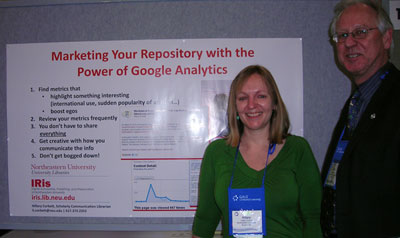RSS Feed Available for NU-Authored Articles
I’ve created an RSS feed for anyone who would like to be alerted when new scholarly articles are published by NU-affiliated authors. It pulls information from Web of Science, which includes not only the Science Citation Index but also the Arts and Humanities Citation Index and Social Sciences Citation Index. In total, Web of Science indexes over 10,000 journals, including open-access titles.
For current NU faculty, students, and staff:
Click here to add the feed to your RSS reader of choice.
⇒ Using this version of the feed will allow you to click through to view more details about an article within Web of Science even if you’re off-campus. (You’ll be prompted to enter your myNEU username and password from off campus.)
For alumni and members of the public:
Click here to add the feed to your RSS reader of choice.
⇒ This feed still provides complete bibliographic citations for new articles, but if you’re off-campus, you will be unable to access further information, such as the abstracts, via Web of Science.
Note: Google Chrome requires a plugin/extension in order to handle RSS feeds correctly, however, Internet Explorer and Firefox are two browsers that work well.
Please let me know if you have any difficulties with this feed.
